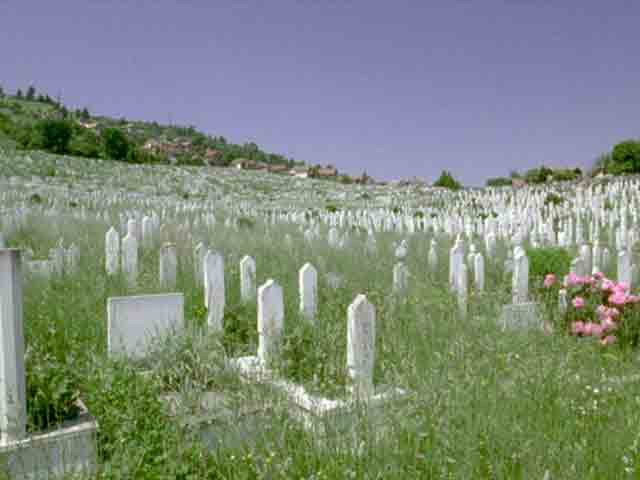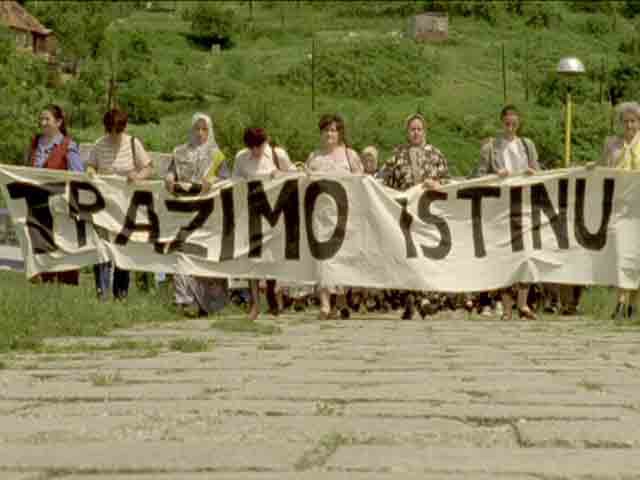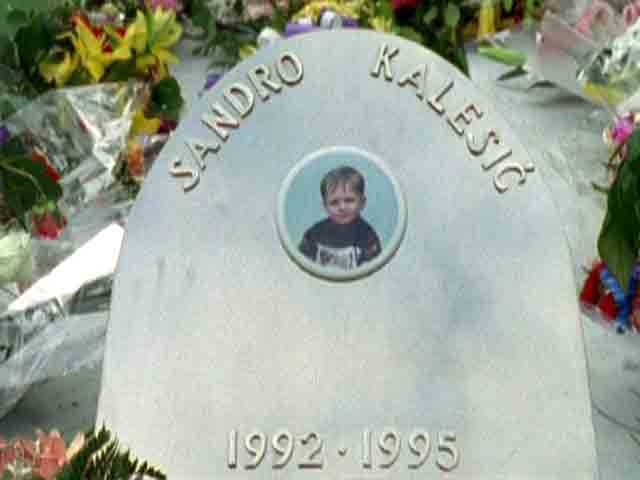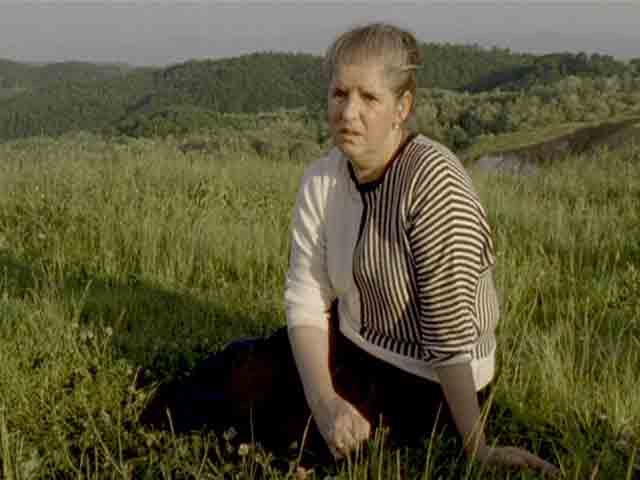Au nom de l'humanité - Le Tribunal de La Haye
-
Réalisé par Edina Ajrulovski • Écrit par Edina Ajrulovski
-
Belgique, France • 1999 • 90 minutes • Super 16 mm • Couleur
- Réalisation :
Edina Ajrulovski - Écriture :
Edina Ajrulovski - Son :
Suzanne Durand
- Production (structure) :
Les Films d'Ici - Coproduction :
Sanelma Future, Simple Production - Diffuseur :
La Sept ARTE - Participation :
CNC - Ayant droit :
Les Films d'Ici
- N° ISAN :
ISAN 0000-0001-9E59-0000-Z-0000-0000-6
Résumé
Le rôle et les enjeux du tribunal pénal international vu du point de vue de l'institution elle-même et du point de vue des victimes en Bosnie qui attendent que la justice soit rendue. "Qu'est-ce qu'un génocide ? "Un génocide vise la destruction de tout un groupe d'individus pour des raisons religieuses, politiques ou ethniques. Même s'il ne réussit pas, il suffit que l'acte soit commis dans cette intention. Il peut être aussi culturel..." rappelle Fouad Abdel-Honeim Riad, juge au Tribunal de La Haye. Et l'historien Colin Kaiser, cité comme témoin à charge, de poursuivre : "dans toutes nos sociétés, il y a des partis politiques, des intellectuels qui rêvent de nettoyer leur territoire et leur histoire. La guerre en Bosnie a montré comment le faire. Et que cela fonctionne." "Au nom de l'humanité, le tribunal de La Haye" suit l'exercice difficile du Tribunal pénal international (TPI) qui juge, depuis 1993, les crimes perpétrés en ex-Yougoslavie et plus particulièrement en Bosnie-Herzégovine. Le film se centre sur la quête opiniâtre d'Harja Catic, membre de l'association "Femmes de Srebrenica". Son mari et l'un de ses fils ont disparu lors de la chute de l'enclave en juillet 1995, avec dix mille autres personnes. Le récit, sobre et poignant, alterne extraits des procès des responsables de ces "crimes contre l'humanité" et témoignages de rescapés, de parents de victimes, d'experts qui enquêtent sur place et de membres du TPI. Si Edina Ajrulovski ne manque pas de souligner certaines limites de la procédure engagée (que ce soit sur le terrain ou au niveau international), "Au nom de l'humanité" prouve que la justice peut se situer au-delà du politique et que les criminels de guerre ne peuvent plus s'en tirer impunément." Bertrand Bacqué
This film shows the concrete action of the tribunal and evoke its daily problems by allowing both magistrates and victims to talk. They’re come from Srebrenica, Brcko or Prijedor... What is genocide ? "Genocide has as it aim the destruction of an entire group of individuals for religious, political or ethnic reasons. Even if it does not succeed, it is enough that the act is committed with this intention. It can also be cultural..." reminds us Fouad Abdel-Honeim Riad, judge at the tribunal of The Hague. And the historian Colin Kaiser, called as a witness for the prosecution, continues : "In all our societies, there are political parties, intellectuals who dream of cleansing their territory and their history. The war in Bosnia has shown how to go about it. And that it works." "Au nom de l'humanité, le tribunal de La Haye" follows the difficult exercise of the International Penal Tribunal (IPT) which, since 1993, has judged the crimes perpetrated in former Yugoslavia and, more particularly, in Bosnia and Herzegovina. The film centres on the stubborn quest of Hajra Catic, a member of the association of the "Women of Srebrenica". Her husband and one of her sons disappeared following the fall of the enclave in July 1995, with then thousand other people. The narrative, sober and poignant, alternates between extracts from the trials of those responsible for these "crimes against humanity" and testimonies from those who managed to escape, parents of the victims, experts making enquiries on the spot and members of the IPT. Even if Edina Ajrulovski does not fail to emphasise certain limits of the procedure employed (both in the field and on the international level) "Au nom de l'humanité" proves that justice can rise above and beyond politics and that war criminals can no longer escape with impunity." Bertrand Bacqué
Mot(s)-clé(s) thématique(s)
Comment avoir accès au film ?
-
Édition DVD
- Il n'existe pas d'édition DVD à notre connaissance
-
Accès VOD
- Il n'existe pas d'accès en VOD à notre connaissance
- Diffusion non commerciale / Consultation




